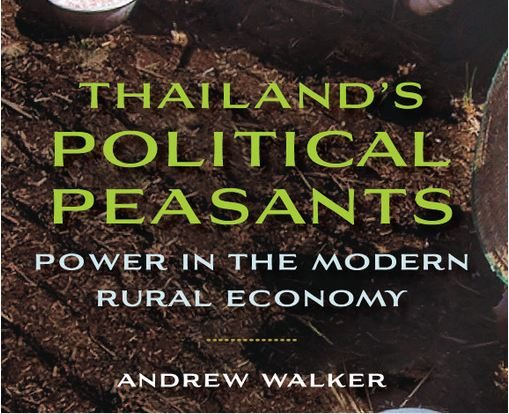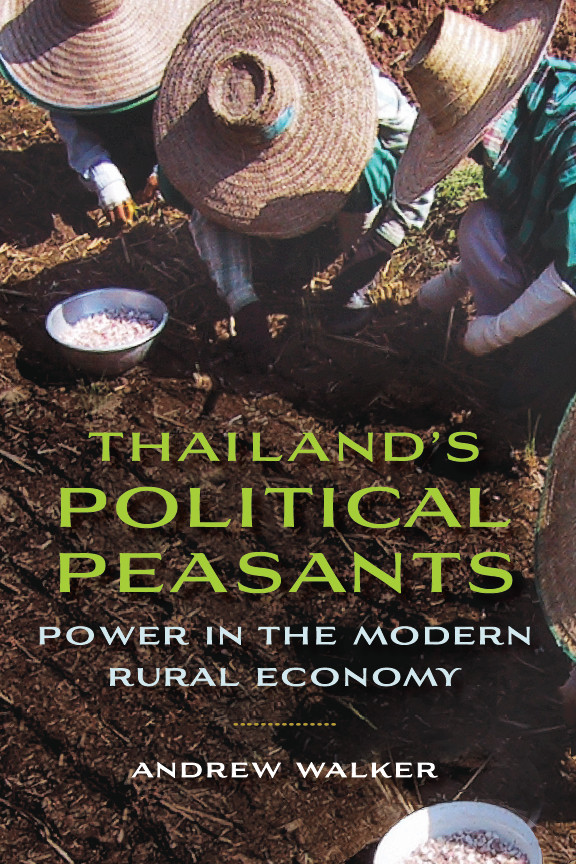My book on Thailand’s Political Peasants is out now. Here is an extract from the Introduction (pp. 5-6):
This book is an exploration of the underlying economic, political, and cultural processes that contributed to Thailand’s contemporary contests over power. It does not examine Thaksin’s political rise or the red-shirt movement directly. Instead, it investigates the rural transformations that have produced a major new player in the Thai political landscape: the middle-income peasant. I examine this middle-income peasantry from the perspective of Ban Tiam, a rural village in northern Thailand, located about one hour’s drive from the region’s major city, Chiang Mai. Of course it would be ludicrous to argue that life in a single village could fully explain the seismic movements that have shaken an entire country. But it is well to remember the old truism that anthropologists don’t study villages, they study in villages. At a time when the political motivations of the peasantry are poorly understood, detailed ethnographic engagement has the advantage of providing insights that fall below the radar of more totalizing forms of analysis. In simple terms my argument is this: in order to understand the politics of Thailand’s middle-income peasantry–including its strong electoral support for Thaksin’s populist policies, the political passions that brought the red shirts to Bangkok, and the electoral triumph of Yingluck Shinawatra–it is necessary to address how power is perceived in a context of rising living standards and a transformed relationship with the state. Rural politics in contemporary Thailand is not the old rebellious or resistant politics of the rural poor; rather, it is a new middle-income politics of peasants whose livelihoods are now relatively secure. Rural Thailand’s new “political society” is energized by a fundamental desire to be productively connected to sources of power. The power of the pro-Thaksin movement lies in a middle-income peasantry whose thoroughly modern political goal is to bind itself to the state, not to oppose it.
Over the next few weeks I will feature some key extracts from the other chapters.
 Facebook
Facebook  Twitter
Twitter  Soundcloud
Soundcloud  Youtube
Youtube  Rss
Rss 
